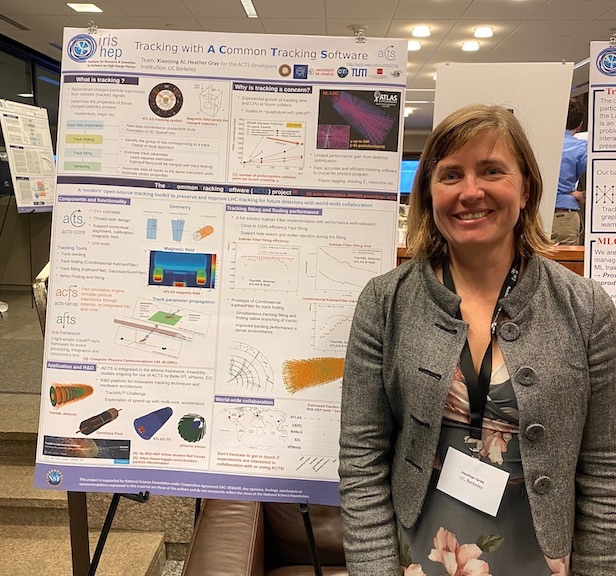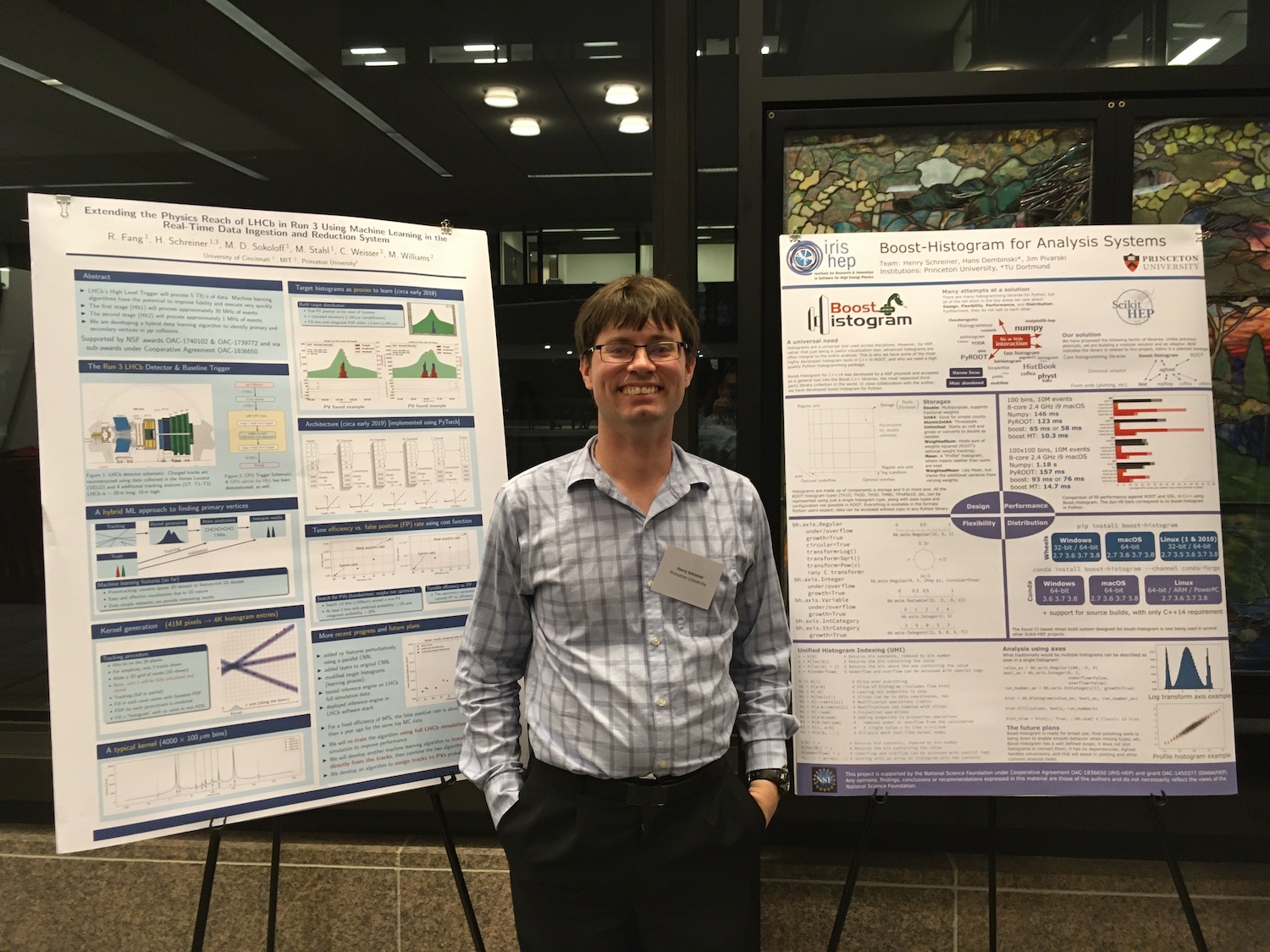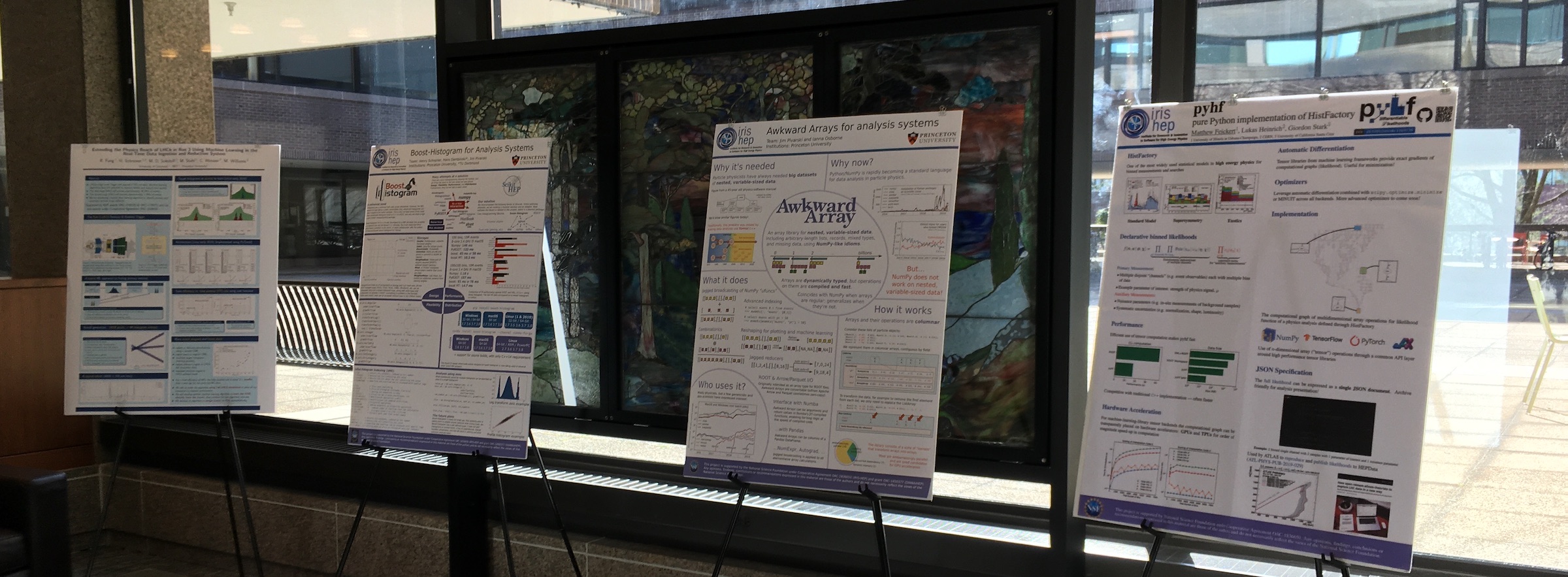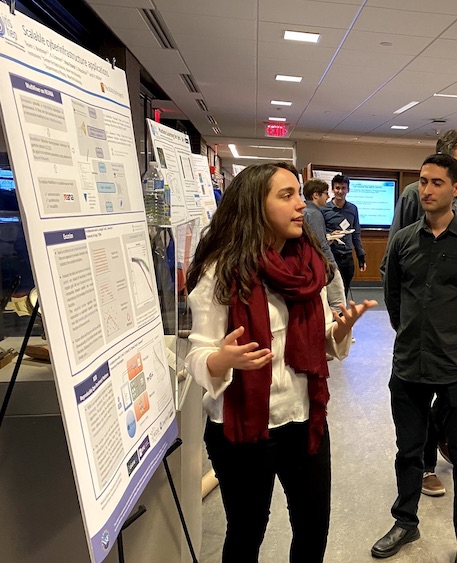
Heather Gray, an assistant professor at the University of California, Berkeley, with the poster for Tracking with A Common Tracking Software (ACTS) Photo Credit: Heather Gray.

Henry Schreiner (Princeton University) with posters for Extending the Physics Reach of LHCb in Run 3 Using Machine Learning in the Real-Time Data Ingestion and Reduction System and Boost-Histogram for Analysis Systems. Photo Credit: Henry Schreiner.
On Thursday, February 27, 2020, members of IRIS-HEP got together at Princeton University to take stock of our progress in the first 18 months and plan for the future. A poster session was held in conjunction with this review session to highlight the work of members from the first 18 months of IRIS-HEP.
In all, twenty-seven posters were presented by PIs, Postdocs, Students, Fellows, and Staff encompassing topics from all areas of IRIS-HEP. The topics included general information about IRIS-HEP, operational and policy information, the development and deployment of services and tools, and the application of novel approaches to computing challenges.
All the posters from the session are available here: IRIS-HEP Poster Session 2020
Posters
- The Institute for Research and Innovation in Software for High Energy Physics (IRIS-HEP)
- Functional Analysis Description Language (FuncADL)
- pyhf: Pure Python Implementation of HistFactory
- Allen: A GPU trigger for LHCb
- Tracking with A Common Tracking Software (ACTS)
- GNN Tracking and FPGA Acceleration
- Integrating Cyberinfrastructure Components: RECAST, REANA, Analysis Preservation, HEPData, INSPIRE
- Rethinking Final Analysis Stages
- Machine Learning for Jets
- Modernizing the LHC’s Transfer Infrastructure
- CSSI Element: C++ as a service - rapid software development and dynamic interoperability with Python and beyond
- GridFTP and GSI Migration Plan
- OSG Accounting and Visualization
- OSG Network Monitoring
- OSG-LHC Operations
- OSG Security Policies
- Infrastructure Software Delivery
- Deep Graph Neural Networks for Fast HGCAL Simulation
- intelligent Data Delivery Service (iDDS)
- SkyhookDM: Programmable Storage for Datasets
- Scalable Cyberinfrastructure Applications
- Extending the Physics Reach of LHCb in Run 3 Using Machine Learning in the Real-Time Data Ingestion and Reduction System
- XCache
- Boost-Histogram for Analysis Systems
- Awkward Array for Analysis Systems
- Ramping up the Scalable Systems Lab
- ServiceX
- Measurements of Data Access

